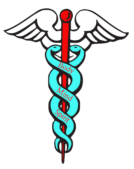Check out our most Frequently Asked Questions
Mental illnesses are medical conditions that disrupt a person’s thinking, feeling, mood, ability to relate to others, and daily functioning. Just as diabetes is a disorder of the pancreas, mental illnesses are medical conditions that often result in a diminished capacity for coping with the ordinary demands of life.
Some of the more common disorders are depression, bipolar disorder, dementia, schizophrenia and anxiety disorders. Symptoms may include changes in mood, personality, personal habits and/or social withdrawal. When these occur in children under 18, they are referred to as serious emotional disturbances (SEDs). Mental illnesses can affect persons of any age, race, religion, or income.
Here are some important facts about mental illness and recovery:
– Mental illnesses are biologically based brain disorders. They cannot be overcome through “will power” and are not related to a person’s “character” or intelligence.
– Mental disorders fall along a continuum of severity. Even though mental disorders are widespread in the population, the main burden of illness is concentrated in a much smaller proportion — about 6 percent, or 1 in 17 Americans — who suffer from a serious mental illness. It is estimated that mental illness affects 1 in 5 families in America.
– Mental illnesses usually strike individuals in the prime of their lives, often during adolescence and young adulthood. All ages are susceptible, but the young and the old are especially vulnerable.
– The best treatments for serious mental illnesses today are highly effective; between 70 and 90 percent of individuals have significant reduction of symptoms and improved quality of life with a combination of pharmacological and psychosocial treatments and supports.
– With appropriate effective medication and a wide range of services tailored to their needs, most people who live with serious mental illnesses can significantly reduce the impact of their illness and find a satisfying measure of achievement and independence. A key concept is to develop expertise in developing strategies to manage the illness process.
– Early identification and treatment is of vital importance. By ensuring access to the treatment and recovery supports that are proven effective, recovery is accelerated and the further harm related to the course of illness is minimized.
Source: National Alliance on Mental Illness (NAMI)
Serious mental illnesses include major depression, schizophrenia, bipolar disorder, obsessive compulsive disorder (OCD), panic disorder, post traumatic stress disorder (PTSD), and borderline personality disorder. All mental disorders fall along a continuum of severity.
Although the exact cause of most mental illnesses is not known, it is becoming clear through research that many of these conditions are caused by a combination of biological, psychological, and environmental factors. Click here to learn more about these factors.
Mental illnesses can affect persons of any age, race, religion, or income. They do not discriminate.
Although mental illnesses can affect anyone, certain conditions such as eating disorders tend to occur more often in females, and other disorders such as attention deficit/hyperactivity disorder more commonly occur in children.
Most mental illnesses are caused by a combination of factors and cannot be prevented.
Remember, most people with mental illnesses who are diagnosed and treated, will respond well and live productive lives. Many never have the same problem again, although some will experience a return of symptoms. The important thing is that there is a range of effective treatments for just about every mental disorder.
